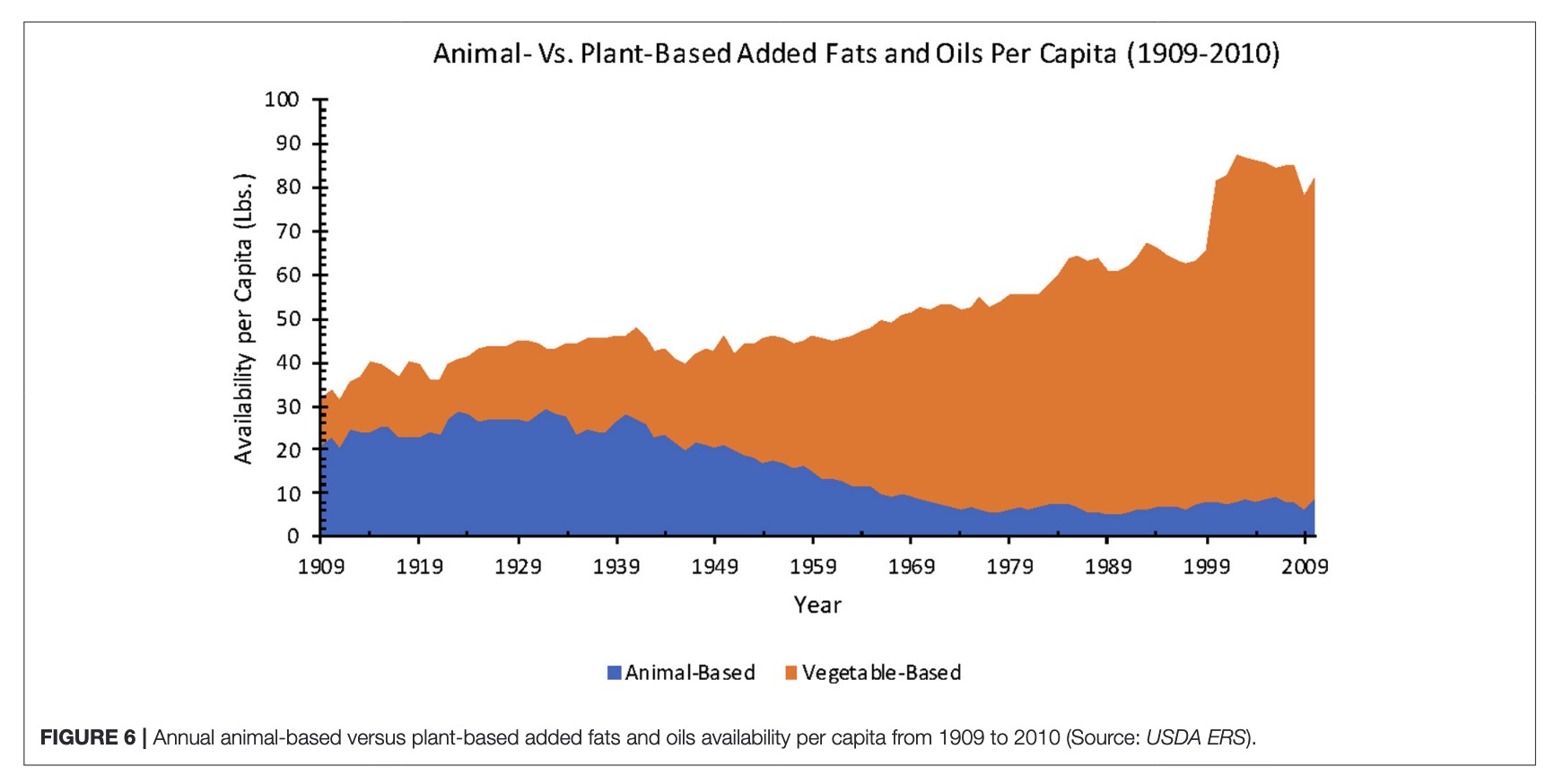We reviewed data on the American diet from 1800 to 2019. Methods: We examined food availability and estimated consumption data from 1800 to 2019 using historical sources from the federal government and additional public data sources. Results: Processed and ultra-processed foods increased from <5 to >60% of foods. Large increases occurred for sugar, white and whole wheat flour, rice, poultry, eggs, vegetable oils, dairy products, and fresh vegetables. Saturated fats from animal sources declined while polyunsaturated fats from vegetable oils rose. Non-communicable diseases (NCDs) rose over the twentieth century in parallel with increased consumption of processed foods, including sugar, refined flour and rice, and vegetable oils. Saturated fats from animal sources were inversely correlated with the prevalence of NCDs. Conclusions: As observed from the food availability data, processed and ultra-processed foods dramatically increased over the past two centuries, especially sugar, white flour, white rice, vegetable oils, and ready-to-eat meals. These changes paralleled the rising incidence of NCDs, while animal fat consumption was inversely correlated.

The standard criticisms will apply:
You should probably read he commentary linked to the paper at the top of the page:
The response article is expert opinion saying that the original research doesn't match preexisting expert opinion.
That is the entire point of the original article.
I might be completely misreading due to my undercaffated brain right now, but isn't it stating that the research is in line with preexisting opinion, but the title is not?
Here they say the research doesn't support existing expert opinion
This is their opinion again, but notice the weasel use of mortality and not incidence? And most worrisome is their relance on existing opinion that SFAs lead to cardiovascular events - They are already assuming the conclusion of their own opinion. That isn't a fair evaluation of the data.
But experts can have different opinions, that's fine... they both get to publish.
You will notice both the research paper and the opinion are in the same journal and neither are retracted. That means they disagree. Commentary isn't peer reviewed, but the original research is.
If you want to have a general conversation on saturated fat itself rather then just this one paper and other researchers opinions on it, we could discuss https://www.dietdoctor.com/low-carb/saturated-fat#evidence-to-date